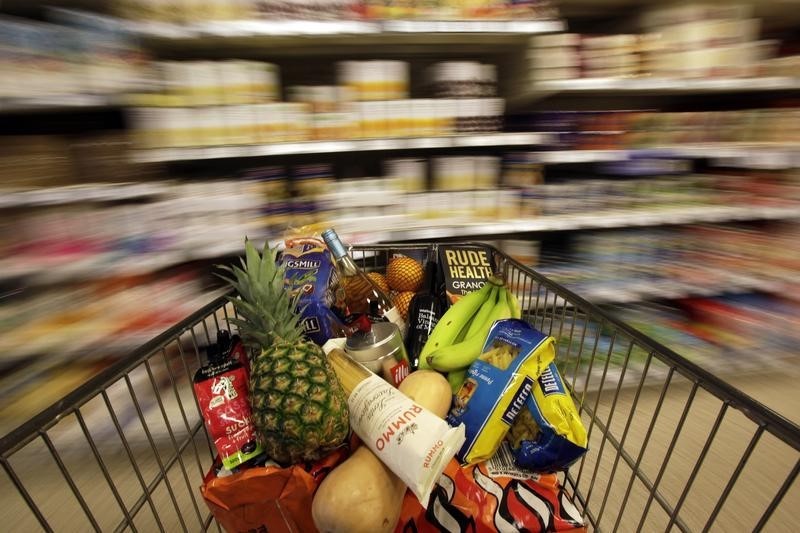LONDON (Reuters) - British inflation edged back towards its lowest rate in more than half a century in June, as food and summer clothing fell in price, official figures showed on Tuesday.
Poleaxed by the after-effects of a slump in oil prices in the second half of last year, British consumer price inflation in April showed its first year-on-year fall since 1960, prompting the Bank of England to say it would soon bounce back.
But official figures on Tuesday showed that consumer price inflation fell to zero percent in June after nudging into positive territory in May, in line with economists' expectations.
In monthly terms, inflation was also flat, the Office for National Statistics said.
BoE Governor Mark Carney has said prices are likely to pick up later this year as 2014's plunge in global oil prices works itself out of the numbers, and for inflation to return to around its 2 percent target by early 2017.
However, an underlying measure of inflation, which strips out increases in energy, food, alcohol and tobacco, fell to 0.8 percent in June, its joint lowest level since March 2001. This suggests lower oil prices may be having an increasing effect on the cost of other goods and services.
The BoE expects temporary near-zero consumer price inflation to help the British economy by boosting households' spending power, and to have limited effects on how businesses set wages and future prices, unlike in parts of Europe.
British wages have picked up in recent months, and figures due on Wednesday are expected to show earnings excluding bonuses to record their biggest rise since early 2009.
However, downward pressures on inflation are likely to persist for some months yet. Brent crude oil prices fell by around $2 a barrel in June, and have dropped further at the start of July.
The ONS said the downward effect from clothing on inflation was particularly marked because June 2014 saw unseasonable rises in prices, whereas this year saw the start of the usual seasonal sales.
Falls in food prices were led by goods such as pizzas, which are commonly used to lead supermarket discounts, capping a year of declining prices -- the longest unbroken run since 2000.
Air fares rose less than last year, particularly for European destinations.
Many economists say the recent rise of sterling against a basket of currencies may limit the pace of future price rises.
Data also released by the ONS on Tuesday showed that factory gate prices fell 1.5 percent in June, the smallest drop so far this year, but as expected by economists.

House prices across Britain rose by 5.7 percent in the 12 months to May, up from 5.5 percent in April, the ONS also said on Tuesday.